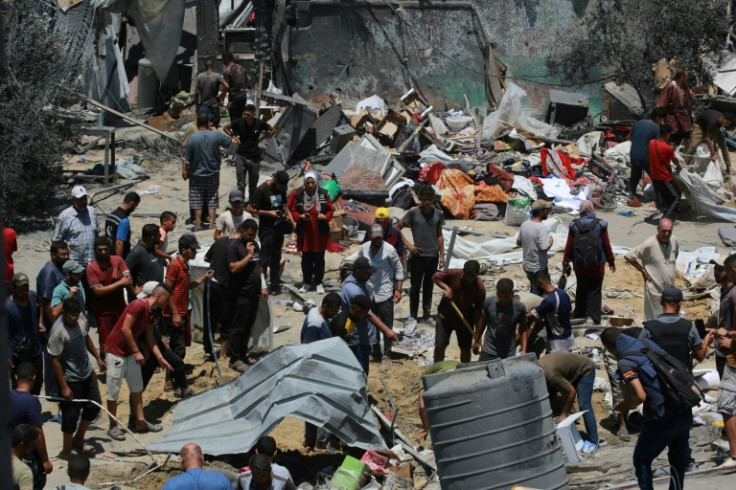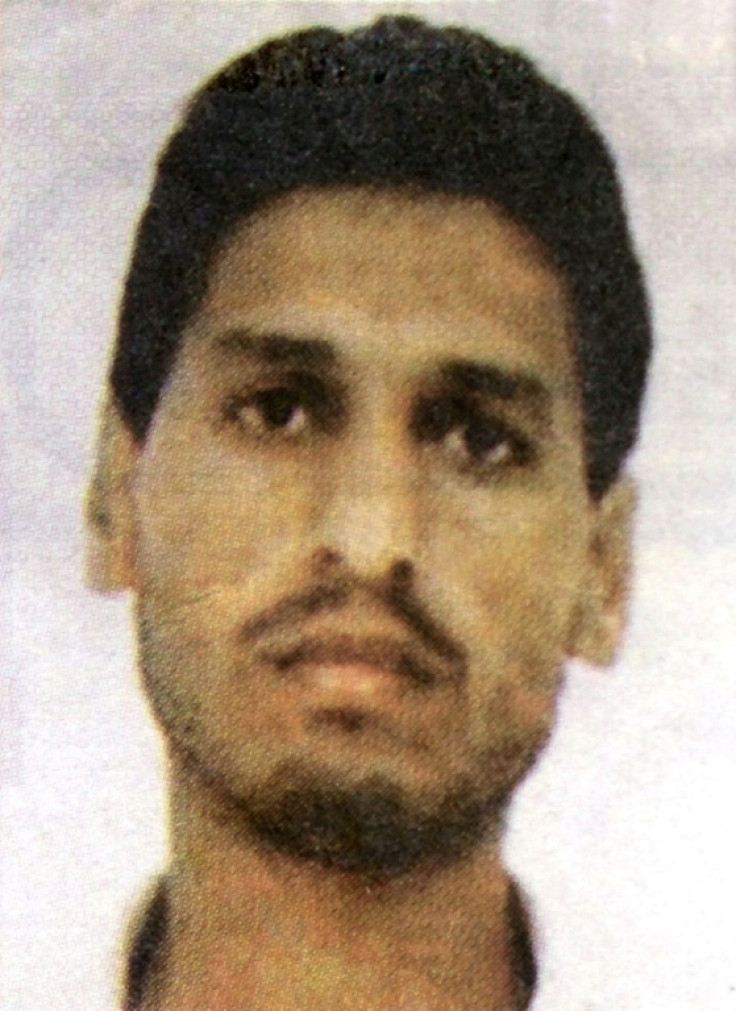
A Hamas official on Sunday said the group is pulling out of Gaza truce talks, following an Israeli strike that targeted the militants' commander Mohammed Deif, who was "fine" despite the attack according to another Hamas figure.
"Commander Mohammed Deif is well and directly overseeing" the operations of the Hamas military wing, the official told AFP. Israel staged a huge bombing raid on a camp for displaced people in southern Gaza on Saturday that it said was an attempt to kill Deif.
Another senior official from the Iran-backed Islamist group, which has been fighting a nine-month-long war with Israel in the Gaza Strip, said Hamas was withdrawing from ceasefire talks because of Israeli "massacres" and the country's attitude in negotiations.
The health ministry in the Hamas-run Gaza Strip said at least 92 people had been killed, more than half of them women and children, and 300 wounded in a strike on the Al-Mawasi camp.
Ismail Haniyeh, Hamas's Qatar-based political chief, told international mediators of the "decision to halt negotiations due to the occupation's (Israel) lack of seriousness, continued policy of procrastination and obstruction, and the ongoing massacres against unarmed civilians", the official said.
Talks mediated by Qatar and Egypt, with US support, have for months tried but failed to bring a halt to the war in the Gaza Strip.
Al-Mawasi, where the health ministry said dozens had been killed, had in May been declared a safe humanitarian zone by the Israeli military and civilians ordered to evacuate to it. However, there have been multiple deadly incidents there blamed on Israeli strikes.
Philippe Lazzarini, head of the UN agency for Palestinian refugees, UNRWA, described the area as "a sandy 14-square-kilometre (5.4-square-mile) agricultural land, where people are left out in the open with little to no buildings or roads".
"The claim that people in Gaza can move to 'safe' or 'humanitarian' zones is false", said Lazzarini on social media site X.
Israel said it had targeted Deif, the head of the Al-Qassam Brigades, as well as Rafa Salama, a brigade commander, in a strike on Saturday.
Israeli Prime Minister Benjamin Netanyahu said late Saturday there was "no certainty" either man had been killed in the strike.
Deif has been among Israel's most wanted men for decades and is blamed by Israeli authorities for the killings of multiple civilians and soldiers. There have been at least six previous attempts on his life.
He announced in an audio message the start of Hamas's surprise October 7 attack on southern Israel, which sparked the Gaza war, and the military has labelled him and Salama "two of the masterminds" of the attack.
Separately on Sunday, rescuers said at least eight people were killed in three separate strikes on different parts of Gaza City.
The Israeli military meanwhile said operations were continuing throughout the territory, including in Gaza City and Rafah.
Hamas's October 7 attack resulted in the deaths of 1,195 people, mostly civilians, according to an AFP tally based on Israeli figures.
The militants also seized 251 hostages, 116 of whom remain in Gaza, including 42 the military says are dead.
Israel responded with a military offensive that has killed at least 38,443 people in Gaza, also mostly civilians, according to a toll from the Gaza health ministry issued Saturday afternoon.
The deaths in the camp in Al-Mawasi drew condemnation from governments across the region, with Egypt's foreign ministry saying such "crimes... cannot be accepted under any justification whatsoever".
The Israeli military said of its attack targeting Deif that "the area that was struck is an open area, surrounded by trees, several buildings and sheds. It was not a tent complex, but an operational compound".
A Hamas statement rejected Israel's claim it had targeted Deif, saying it was intended "to cover up the magnitude of the horrific massacre".
Earlier this week, US President Joe Biden had said that a framework for a truce and hostage deal he had set out earlier in the war was "now agreed on by both Israel and Hamas".
"There are still gaps to close, but we're making progress," he added.
On Saturday night Hamas official Bassem Naim told AFP that Netanyahu was to blame for the impasse and called on Biden to put "sufficient pressure" on the Israeli leader to secure a deal.
The negotiations have been brought to a halt by Hamas's withdrawal Sunday, but the official quoted Haniyeh as saying that the group was "ready to resume negotiations when the occupation government (Israel) demonstrates seriousness in reaching a ceasefire agreement and a prisoner exchange deal".
An Israeli security source, speaking on condition of anonymity, said on Saturday that the strike showed Israel "will continue to target senior Hamas leadership" even as it "pursues negotiations for a hostage agreement".











